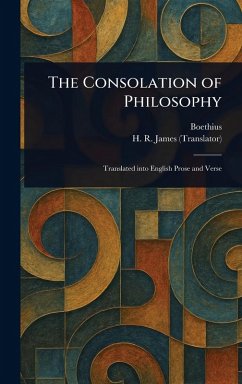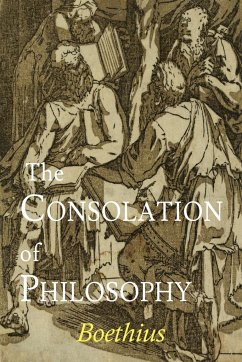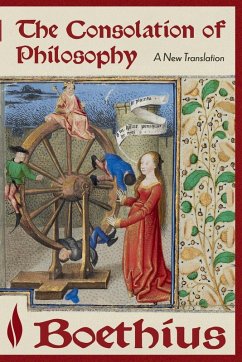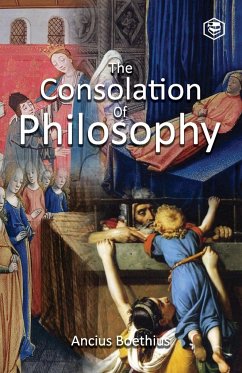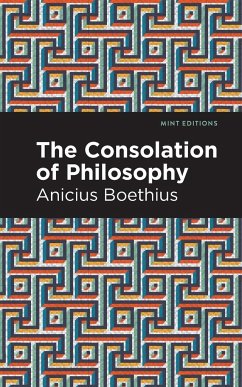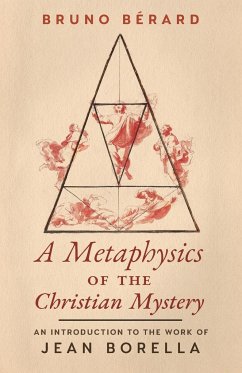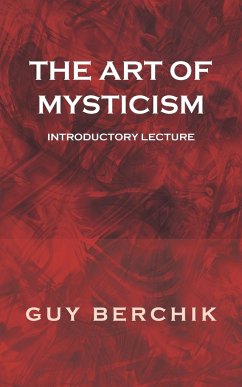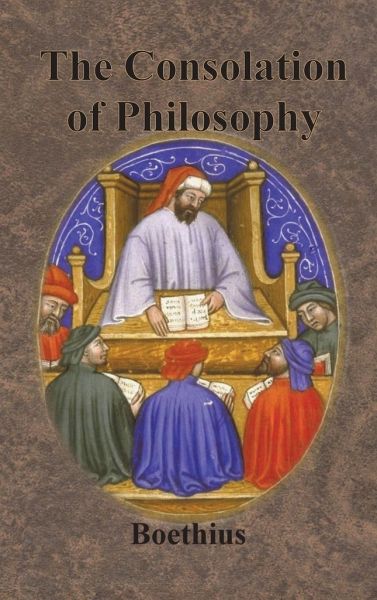
The Consolation of Philosophy
Versandkostenfrei!
Versandfertig in 1-2 Wochen
16,99 €
inkl. MwSt.

PAYBACK Punkte
8 °P sammeln!
Complete edition of The Consolation of Philosophy by Boethius and translated by W. V. Cooper. As Boethius approached death, he contemplates what is happiness, purpose, and definition of a 'good' life. Insightful thinking for all time. To assist with understanding the middle English text, many words have been translated in the footnotes. "You and God Himself, who has grafted you in the minds of philosophers, are my witnesses that never have I applied myself to any office of state except that I might work for the common welfare of all good men." All students of thought should get this historic b...
Complete edition of The Consolation of Philosophy by Boethius and translated by W. V. Cooper. As Boethius approached death, he contemplates what is happiness, purpose, and definition of a 'good' life. Insightful thinking for all time. To assist with understanding the middle English text, many words have been translated in the footnotes. "You and God Himself, who has grafted you in the minds of philosophers, are my witnesses that never have I applied myself to any office of state except that I might work for the common welfare of all good men." All students of thought should get this historic book. This 1902 edition is provided in a slim volume with full text at an affordable price.





